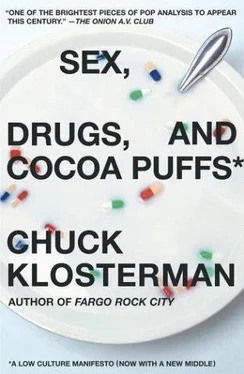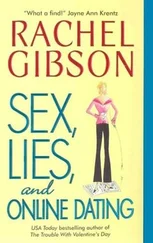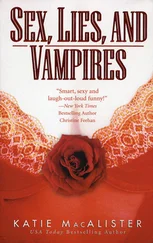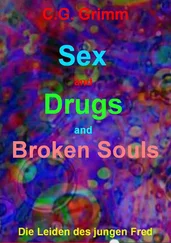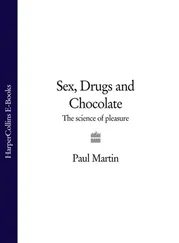What’s interesting about this evolution is that the value of a movie like Star Wars was vastly underrated at the time of its release and is now vastly overrated in retrospect. In 1977, few people realized this film would completely change the culture of filmmaking, inasmuch as this was the genesis of all those blockbuster movies that everyone gets tricked into seeing summer after summer after summer. Star Wars changed the social perception of what a movie was supposed to be; George Lucas, along with Steven Spielberg, managed to kill the best era of American filmmaking in less than five years. Yet—over time— Star Wars has become one of the most overrated films of all time, inasmuch as it’s pretty fucking terrible when you actually try to watch it. Star Wars ’s greatest asset is that it’s inevitably compared to 1983’s Return of the Jedi, quite possibly the least-watchable major film of the last twenty-five years. I once knew a girl who claimed to have a recurring dream about a polar bear that mauled Ewoks; it made me love her.
However, the middle film in the Star Wars trilogy, The Empire Strikes Back, remains a legitimately great picture—but not for any cinematic reason. It’s great for thematic, social reasons. It’s now completely obvious that The Empire Strikes Back was the seminal foundation for what became “Generation X.” [52] 1. I know nobody uses the term Generation X anymore, and I know all the people it supposedly describes supposedly hate the supposed designation. But I like it. It’s simply the easiest way to categorize a genre of people who were born between 1965 and 1977 and therefore share a similar cultural experience. It’s not pejorative or complimentary; it’s factual. I’m a “Gen Xer,” okay? And I buy shit marketed to “Gen Xers.” And I use air quotes when I talk, and I sigh a lot, and I own a Human League cassette. Get over it.
In a roundabout way, Boba Fett created Pearl Jam. While movies like Easy Rider and Saturday Night Fever painted living portraits for generations they represented in the present tense, The Empire Strikes Back might be the only example of a movie that set the social aesthetic for a generation coming in the future. The narrative extension to The Empire Strikes Back was not the Endor-saturated stupidity of Return of the Jedi ; it was Reality Bites .
I concede that part of my bias toward Empire probably comes from the fact that it was the first movie I ever saw in a theater. This is a seminal experience for anyone, and I suppose it unconsciously shapes the way a person looks at cinema (I initially assumed all theatrical releases were prefaced by an expository text block that was virtually incomprehensible). The film was set in three static locations: The ice planet Hoth (which looked like North Dakota), the jungle system Dagobah (which was sort of like the final twenty minutes of Apocalypse Now ), and the mining community of Cloud City (apparently a cross between Las Vegas and Birmingham, Alabama). It’s often noted by critics that this is the only Star Wars film that ends on a stridently depressing note: Han Solo is frozen in carbonite and torn away from Princess Leia, Luke gets his paw hacked off, and Darth Vader has the universe by the jugular. The Empire Strikes Back is the only blockbuster of the modern era to celebrate the abysmal failure of its protagonists. This is important; this is why The Empire Strikes Back set the philosophical template for all the slackers who would come of age ten years later. George Lucas built the army of clones that would eventually be led by Richard Linklater.
Now, I realize The Empire Strikes Back was not the first movie all future Gen Xers saw. I was eight when I saw Empire, and I distinctly remember that a lot of my classmates had already seen Star Wars (or at least its first theatrical rerelease) and of course they all loved it, mostly because little kids are stupid. But Empire was the first movie that people born in the early seventies could understand in a way that went outside of its rudimentary plot-line. And that’s why a movie about the good guys losing—both politically and romantically—is so integral to how people my age look at life.
When sociologists and journalists started writing about the sensibilities that drove Gen Xers, they inevitably used words like angst-ridden and disenfranchised and lost . As of late, it’s become popular to suggest that this was a flawed stereotype, perpetuated by an aging media who didn’t understand the emerging underclass.
Actually, everyone was right the first time.
All those original pundits were dead-on; for once, the media managed to define an entire demographic of Americans with absolute accuracy. Everything said about Gen Xers—both positive and negative—was completely true. Twenty-somethings in the nineties rejected the traditional working-class American lifestyle because (a) they were smart enough to realize those values were unsatisfying, and (b) they were totally fucking lazy. Twenty-somethings in the nineties embraced a record like Nirvana’s Nevermind because (a) it was a sociocultural affront to the vapidity of the Reagan-era paradigm, and (b) it fucking rocked. Twenty-somethings in the nineties were by and large depressed about the future, mostly because (a) they knew there was very little to look forward to, and (b) they were obsessed with staring into the eyes of their own self-absorbed sadness. There are no myths about Generation X. It’s all true.
This being the case, it’s clear that Luke Skywalker was the original Gen Xer. For one thing, he was incessantly whiny. For another, he was exhaustively educated—via Yoda—about things that had little practical value (i.e., how to stand on one’s head while lifting a rock telekinetically). Essentially, Luke went to the University of Dagobah with a major in Buddhist philosophy and a minor in physical education. There’s not a lot of career opportunities for that kind of schooling; that’s probably why he dropped out in the middle of the semester. Meanwhile, Luke’s only romantic aspirations are directed toward a woman who (literally) looks at him like a brother. His dad is on his case to join the family business. Most significantly, all the problems in his life can be directly blamed on the generation that came before him, and specifically on his father’s views about what to believe (i.e., respect authority, dress conservatively, annihilate innocent planets, etc.).
Studied objectively, Luke Skywalker was not very cool. But for kids who saw Empire, Luke was The Man. He was the guy we wanted to be. Retrospectively, we’d like to claim Han Solo was the single-most desirable character—and he was, in theory. But Solo’s brand of badass cool is something you can’t understand until you’re old enough to realize that being an arrogant jerk is an attractive male quality. Third-graders didn’t want to be gritty and misunderstood; third-graders wanted to be Mark Hamill. And even though obsessive thirty-year-old fans of the trilogy hate to admit it, these were always kids’ movies. Lucas is not a Coppola or a Scorsese or even a De Palma—he makes movies that a sleepy eight-year-old can appreciate. [53] 2. Case in point: When Episode I — The Phantom Menace came out in 1999, all the adults who waited in line for seventy-two hours to buy opening-night tickets were profoundly upset at the inclusion of Jar Jar Binks. “He’s annoying,” they said. Well, how annoying would R2D2 have seemed if you hadn’t been in the third fucking grade? Viewed objectively, R2D2 is like a dwarf holding a Simon.
That’s his gift, and he completely admits it. “I wanted to make a kids’ film that would … introduce a kind of basic morality,” Lucas told author David Sheff. And because the Star Wars movies were children’s movies, Hamill had to be the center of the story. Any normal child was going to be drawn to Skywalker more than Solo. That’s the personality we swallowed. So when all the eight-year-olds from 1980 turned twenty-one in 1993, we couldn’t evolve. We were just old enough to be warped by childhood and just young enough not to realize it. Suddenly, we all wanted to be Han Solo. But we were stuck with Skywalker problems.
Читать дальше
